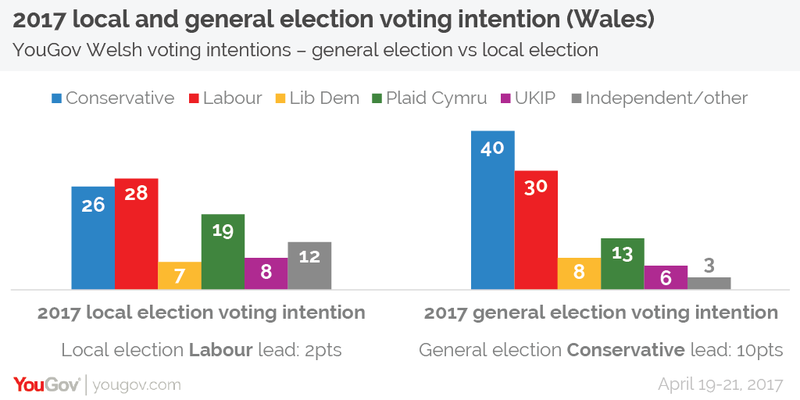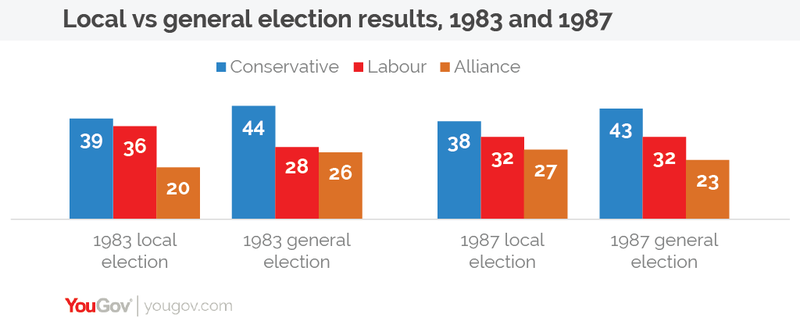Why local elections are not useful indicators of national votes
This article was written by YouGov's Anthony Wells and was originally published on YouGov's website. He's kindly allowed us to feature it here.
Join 72,953 people who trust us to check the facts
Sign up to get weekly updates on politics, immigration, health and more.
Subscribe to weekly email newsletters from Full Fact for updates on politics, immigration, health and more. Our fact checks are free to read but not to produce, so you will also get occasional emails about fundraising and other ways you can help. You can unsubscribe at any time. For more information about how we use your data see our Privacy Policy.
Don’t assume people will vote the same way in this Thursday’s local election and next month’s general election; it’s a lot more complicated than that.
This Thursday there are local elections across Scotland, Wales and English county councils. Given the imminent general election, lots of people will look at them for signs of what will happen at the national poll a month later. While they will give us some useful pointers, be careful—don’t just assume people will vote the same way; it’s a lot more complicated than that.
We should start by noting what results we'll get on the 4th May. It is not the whole country that will be voting. There are no local elections in London, and while some areas (like the Liverpool region, Greater Manchester and the West Midlands) have mayoral elections, there are no local council elections in the metropolitan areas.
To get round this skew and fill in the patchwork of actual results, the BBC will produce what it calls a "Projected National Share." This is an estimate of what the levels of support the parties would have received were there local elections everywhere and is based on the swing in key wards. Professors Rallings and Thrasher of Plymouth University will also produce similar figures called the “National Equivalent Vote.”
While both of these notional national shares give us a very good idea of how people voted at the local election this month, they won't necessarily give us a good pointer of what the national result will be next month. People vote differently at local elections. They have lower turnout, some people will vote based on local issues or their local councillor, and people know that who they choose doesn't involve putting Jeremy Corbyn or Theresa May into power.
To give a good example of this, in our last Welsh poll we asked both Westminster voting intention and local council voting intention. As the chart below shows, people gave very different answers for the two ballots: 14% more people said they would vote Conservative in the Westminster election than in the local elections.

In 1983 and 1987 Margaret Thatcher called an election immediately after the local elections (general election campaigns were shorter then), meaning then—as now—we got local elections in May and a general election a month later. This is the comparison between the projected vote shares coming out of the local elections and the actual general election results just a month later.

All of this isn’t to say that the local elections won't give us anything useful. They will provide some vital information about the pattern of support and where parties are performing particularly strongly or weakly. In particular I'll be looking to see if there is a bigger swing between Labour and the Conservatives in areas that voted Leave at the EU referendum and to what degree the Liberal Democrat recovery is concentrated in Remain areas and in areas of previous Lib Dem strength.
However, don’t just assume that the projected overall shares of the vote at this week’s votes are going to be repeated in next month’s election: people vote differently for different reasons at different sorts of election.